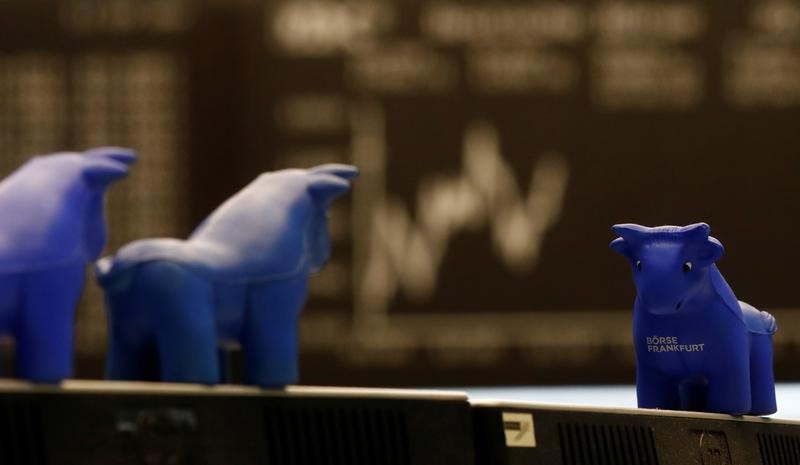This post was originally published on this site
https://i-invdn-com.investing.com/news/LYNXMPEE0E0CM_M.jpg
Investing.com – European stock markets are expected to open higher Tuesday, as investors monitor China’s ongoing COVID outbreak as well as the latest Spanish and German inflation numbers.
At 02:00 ET (07:00 GMT), the DAX futures contract in Germany traded 0.4% higher, CAC 40 futures in France climbed 0.5% and the FTSE 100 futures contract in the U.K. rose 0.3%.
China reported on Monday its first drop in the number of daily infections in more than a week. Local media reports indicated that Chinese authorities will make an announcement later this session, prompting speculation that the Chinese government was considering scaling back its anti-COVID policies.
This followed widespread protests over the weekend amid growing public anger towards the severe COVID-linked restrictions.
Back in Europe, European investors will focus on inflation, with German and Spanish consumer prices scheduled for later in the session, ahead of Wednesday’s preliminary reading of Eurozone inflation for November.
Inflation in the Eurozone is expected to come in at 10.4% in November, a small drop from October’s 10.6%, but this is unlikely to stop the European Central Bank from continuing its rate hikes given this would still be more than five times its 2% target.
ECB President Christine Lagarde said on Monday the region’s inflation has not peaked and it risks turning out even higher than currently expected, hinting at more interest rate hikes ahead.
In corporate news, Nestle (SIX:NESN) guided its 2022 sales outlook higher, with the Swiss food giant forecasting its October organic sales would rise around 8%.
Earnings from budget airline easyJet (LON:EZJ) are also scheduled for release.
Crude oil prices jumped Tuesday on speculation that the recent weakness will prompt OPEC+ to cut production when it meets next week.
The crude market has struggled of late as rising COVID-19 cases in China, the world’s top crude importer, has meant the reintroduction of strict mobility restrictions, weighing on economic activity and thus demand for crude.
At the same time, European and U.S. economies, the other major sources of energy demand, are rapidly approaching recession.
This has resulted in crude prices falling below the levels that spurred October’s supply cut by the Organization of the Petroleum Exporting Countries and allies, known as OPEC+.
By 02:00 ET, U.S. crude futures traded 1.4% higher at $78.34 a barrel, while the Brent contract rose 1.7% to $85.34.
Additionally, gold futures rose 0.6% to $1,751.00/oz, while EUR/USD traded 0.2% higher at 1.0362.

